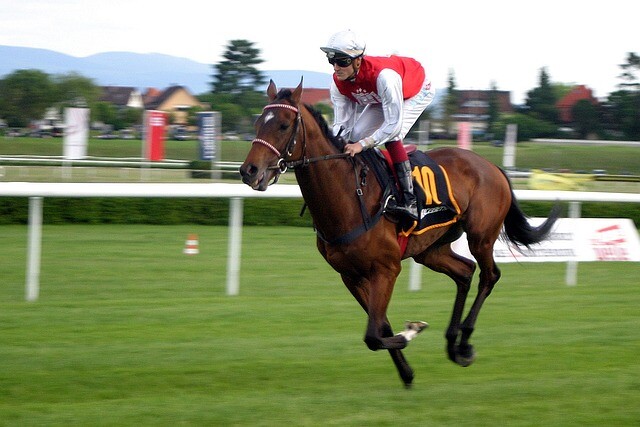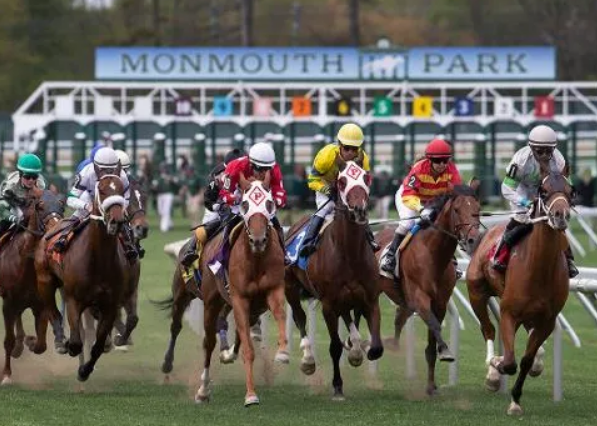Which is the best racecourse in the world?
 Horse racing is popular in many jurisdictions, including Europe, North America, Australia and Asia, so any discussion of the ‘best’ racecourse in the world is bound to be highly subjective. However, what makes a premier racecourse essentially boils down to the configuration, construction and location of the course, available facilities and the type, frequency and quality of the racing staged.
Horse racing is popular in many jurisdictions, including Europe, North America, Australia and Asia, so any discussion of the ‘best’ racecourse in the world is bound to be highly subjective. However, what makes a premier racecourse essentially boils down to the configuration, construction and location of the course, available facilities and the type, frequency and quality of the racing staged.
For example, Ascot Racecourse, in Berkshire, South East England, has enjoyed a prestigious association with the British Royal Family for over 300 years. Ascot is best known for the five-day Royal Ascot meeting, staged annually in June, but hosts numerous premier events throughout the year. Between September, 2004 and June, 2006, Ascot underwent a £200 million redevelopment, including a new, 45,000-capacity grandstand building and a new parade ring, with the express intention of becoming the ‘finest racecourse in the world’.
Just a short hop across the English Channel, in the Bois de Boulogne, west of Paris, Longchamp Racecourse is best known as the home of the Prix de l’Arc de Triomphe, run annually on the first Sunday in October. Nowadays the most valuable race in Europe, with €5,000,000 in total prize money, the Prix de l’Arc de Triomphe celebrated its centenary in 2021. The roll of honour includes Ribot, Sea Bird, Mill Reef, Dancing Brave and Sea The Stars, to name but a handful. Redeveloped, at a cost of €140 million, in 2016 and 2017 and rebranded ‘ParisLongchamp’, the most iconic racecourse in France nows features a striking 160-metre long grandstand, offering uninterrupted, 180º views across the racecourse. This is big money across the board, which of course in the world of gambling can be associated with anything from a win at the races or on slots at www.jokaroom.io etc.
On the other side of the Atlantic Ocean, Churchill Downs in Kentucky, in the Southeastern United States, is best known as the perennial home of the so-called ‘Run for the Roses’, the Kentucky Derby, which it has hosted annually, on the first Saturday in May, since 1875. Universally recognisable by its trademark twin spires, Churchill Downs is a National Historic Landmark but, in 2005, unveiled a 3½-year, $121 million facelift, which included a new, spacious clubhouse and luxury suites.
Elsewhere in the world, other candidates for the ‘best’ racecourse include Meydan Racecourse in Dubai, home of the Dubai World Cup, and Flemington Racecourse in Melbourne, Australia, home of the Melbourne Cup. Of course, there are many more, but ultimately the choice is a matter of personal preference.
 Anyone looking for horse racing in the vicinity of the capital city may be pleased to learn that there are, in fact, five or six racecourses, offering Flat and National Hunt action, within 30 miles of central London. Kempton Park, which is situated in Sunbury-on-Thames, Surrey, on the outskirts of Greater London, is the closest of them all, at a distance of just over 15 miles via the A4 and A316.
Anyone looking for horse racing in the vicinity of the capital city may be pleased to learn that there are, in fact, five or six racecourses, offering Flat and National Hunt action, within 30 miles of central London. Kempton Park, which is situated in Sunbury-on-Thames, Surrey, on the outskirts of Greater London, is the closest of them all, at a distance of just over 15 miles via the A4 and A316.